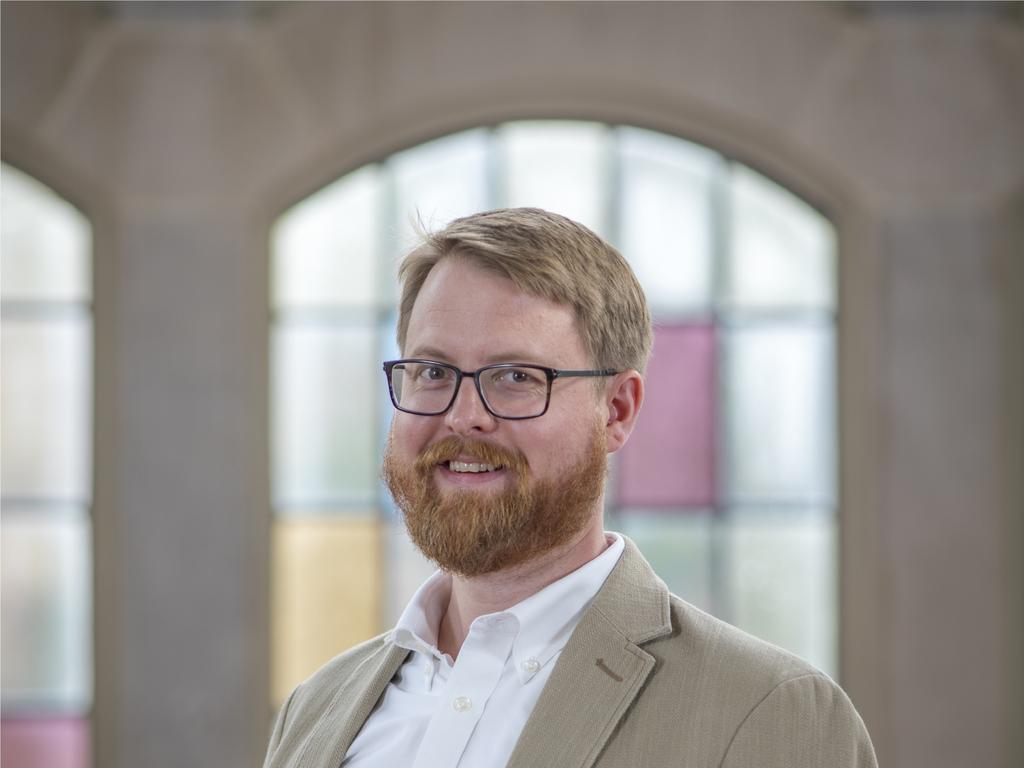Dr. Ross Sowell, assistant professor of computer science at Rhodes College, is the recipient of an $84,657 award funded by the National Science Foundation (NSF) for a research project contributing to advances in robotics and creating appropriate policies governing collaborative robots’ deployment in various social situations and public spaces.
Sowell is a principal investigator on the project titled “Grounded Reasoning About Robot Capabilities for Law and Policy,” which is part of a larger NSF grant totaling $750,000 and involving faculty at Oregon State University and the University of North Texas.
“This funding will strengthen my collaboration with colleagues at these institutions, support my ongoing work, and provide opportunities for Rhodes students to engage in this research,” says Sowell, whose research interests include human-robot interaction and computer graphics.
Robots are being designed to work alongside and directly interact with humans, even understanding human gestures and expressions. Examples include robots assembling packages and delivering meals.
With these robots—known as collaborative robots—entering public spaces, roboticists are having to view their technological designs through a law and policy lens to ensure safety and protect privacy. For example, how is an end user’s privacy protected when interacting with a robot that is installed with a camera? Or, who is the responsible party if a robot malfunctions and causes a disruption to the environment in which it is placed?
“Imagine a robot that is helping an elderly person cross the street and an accident happens,” says Sowell. “How do we establish who is at fault? Is it the programmer? The robot manufacturer? The company that leases the robot? The person who bought the robot? Moreover, how could it be demonstrated that a good-faith effort was made to make the robot as safe as possible? And how would we recompense the victims in the case of an accident?”
Over a three-year period, Sowell will be working with investigators including Ruth West, professor of design and new media at the University of North Texas; Dr. Cindy Grimm, professor of robotics at Oregon State; and Dr. Bill Smart, professor of mechanical engineering and robotics at Oregon State. The principal investigators will further collaborate with legal experts including Woodrow Hartzog, professor of law and computer science at Northeastern University; Ryan Calo, professor of law at the University of Washington; and Jennifer Wondracek, director of legal educational technology at the University of North Texas at Dallas.
Three Rhodes students—Marisa Hudspeth ’22, Osman Celikok ’22, and Waldo Abu Al-Afia ’23—also will contribute to the research project.
The team aims to develop a structured language paradigm and interactive tools for enabling reasoning about how robots and autonomous systems work at a non-technical level and to construct a set of case studies for specific robot-use scenarios to enable meaningful dialog around law and policy and robotics.
“We need to have these conversations now before these new technologies are widely deployed and damage is already done,” says Sowell. “These issues must be addressed if we are to avoid a backlash against the technologies and see ubiquitous co-robots doing useful work in the real world.”
